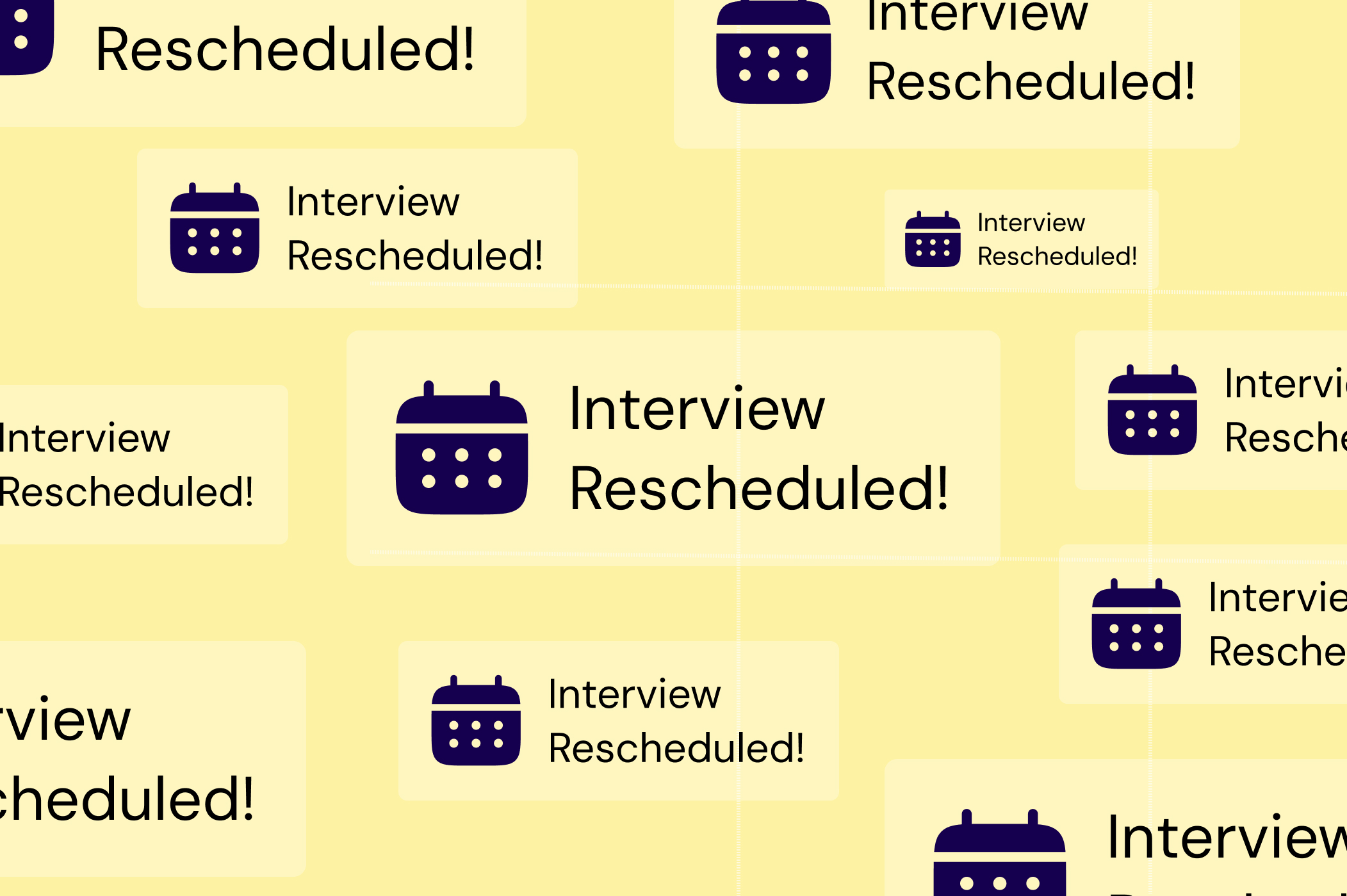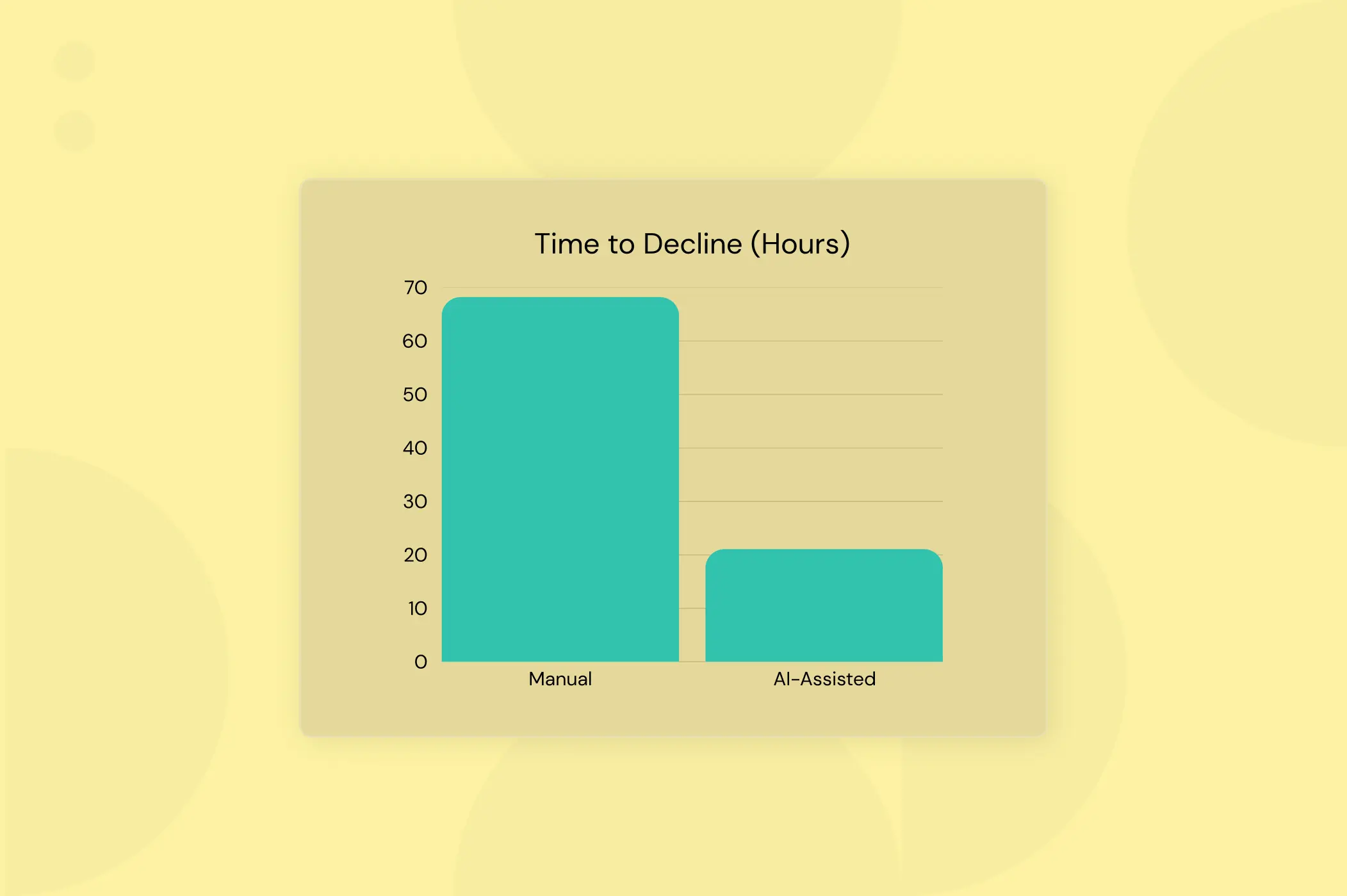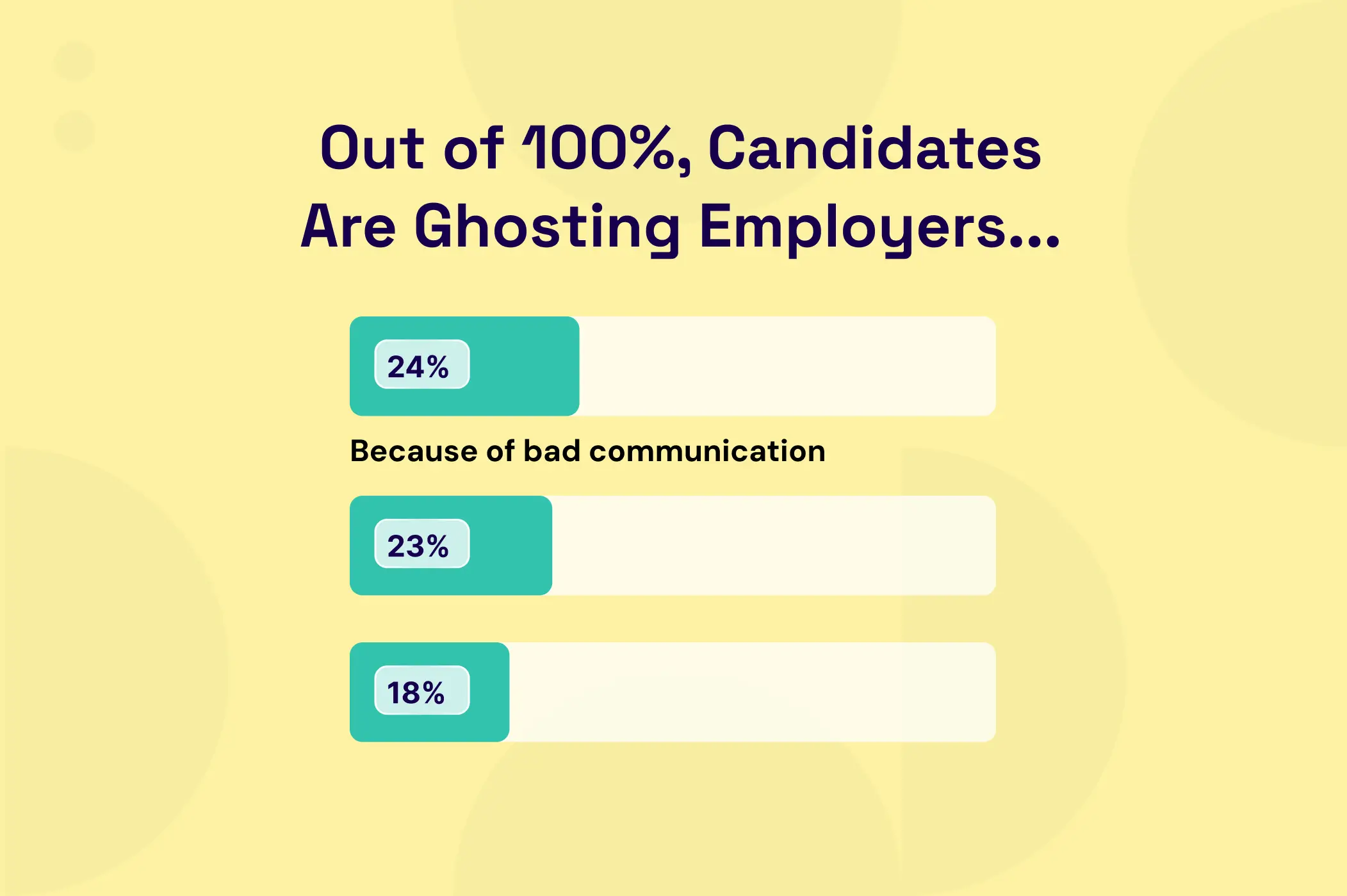Manual interview scheduling feels manageable when hiring is light and interviewers behave as expected. As hiring volume increases or teams distribute across time zones and departments, the cracks appear quickly, and the cost of no-shows and last-minute reschedules escalates into an operational problem that recruiting leaders can no longer ignore.
Across interviews and coordinator conversations, one theme repeats: last-minute scheduling issues create the majority of avoidable chaos inside talent teams.
They derail the recruiting day and undermine the reliability of the overall hiring process.
This post breaks down the real price of no-shows and reschedules and how AI scheduling tools eliminate the emergency coordination.
TL;DR: Quick Answer
No-shows and last-minute reschedules cost far more than lost calendar slots. They consume hours of manual cleanup, frustrate candidates, delay hiring decisions, and reduce trust in the recruiting function.
Why No-Shows and Reschedules Are So Disruptive
When an interviewer cancels, the recruiting impact isn’t isolated to that single call.
It radiates across the schedule because most interviews depend on sequential steps. Coordinators must reconstruct the plan by hand, involving time zones, hiring managers, candidate expectations, and ATS updates, often under urgent timelines.
This is why coordinators often describe scheduling as “a beast” and “pure chaos when anyone changes their availability last minute”.
Even a small change can create hours of new work, because every rescheduled event triggers multiple touchpoints that must be updated manually across stakeholders.
What No-Shows Actually Cost Recruiting Teams
1. Hours of manual reconstruction
When an interviewer drops out at the last minute, coordinating a replacement is rarely a simple substitution. Coordinators must identify available interviewers who meet level requirements, check calendar accuracy, confirm willingness, and rebuild the interview flow in the ATS.
2. Slower time-to-hire that compounds across roles
Even a 24-hour delay can push a final decision into the following week, particularly when hiring managers travel or interviewers have back-to-back meetings.
In our conversations with talent teams, coordinators shared stories of losing candidates entirely because rescheduling took too long, with one noting that even one missed update means one missed interview, a failure that could have been avoided with real-time scheduling tools.
3. A damaged candidate experience that persists long after the interview
Candidates interpret logistical issues as signs of disorganization, even when the coordinator is doing everything possible behind the scenes.
During our research, one candidate described arriving for an interview only to learn the hiring manager wasn’t there, resulting in a forced reschedule and the feeling that the company doesn’t value people’s time.
These moments weaken employer brand and push top candidates away.
Unlock the Future of Recruiting— Book a Demo Today!

Where Manual and First-Generation Scheduling Tools Break Down
Tools like Calendly links, basic calendar integrations, and lightweight ATS add-ons help reduce the initial effort of booking interviews.
However, they do not solve the complexity of changes, which is where most coordination work originates.
RCs consistently reported issues such as:
- Calendar availability that appears free but is actually blocked
- Reschedules that don’t sync back to the ATS
- Panel interviews that must be rebuilt manually
- Time zone errors caused by inconsistent calendar settings
- Interviewers declining invites without offering new times
A scheduling tool that cannot handle disruption isn’t a scheduling solution.
How AI-Driven Rescheduling Fixes Emergency Coordination
AI scheduling tools prevent cancellations from becoming crises.
They reduce manual decision-making and ensure candidates never feel the impact.
1. Automatic interviewer replacement
When an interviewer cancels, AI identifies the right replacement using skill level, team rules, time zone, and load balancing, then rebuilds the entire interview sequence.
In practice, this looks like our customers seeing 1/3 of declines automatically getting replacements when they use our AI agent, fyi.
This completely avoids the multi-hour scramble to reschedule the interview with someone who is both qualified and available.
2. Instant notifications to all stakeholders
Candidates receive updated invites immediately. Interviewers get the new time without requiring follow-up messages. Hiring managers stay aligned without a coordinator coordinating every point.
This real-time communication closes the loop before it opens.
3. Rebuilding multi-round and multi-panel interviews in seconds
Enterprise interviews are interdependent. When one block changes, the rest must follow.
AI reconstructs the entire sequence, keeping the same instructions, content, and meeting links, which dramatically reduces human rework.
4. Dramatically faster recovery time
What used to take coordinators 45–90 minutes now takes seconds through automated workflows.
When rescheduling no longer derails the day, coordinators gain back hours. Sometimes enough to shift from admin work to candidate experience and communication.
5. Proactive prevention of no-shows
Automated reminders, clear instructions, time-zone-aware messaging, and visibility through a candidate portal reduce the likelihood of no-shows in the first place.
The clearer the experience, the more reliable the attendance.
What the Best Teams Do Instead
High-performing talent teams aren’t relying on manual scheduling or lightweight tools to manage complex interviews. They’re using AI interviewing and coordination platforms that handle:
- cancellations,
- reassign interviewers automatically,
- update candidates instantly,
- and keep interview loops stable even when the unexpected happens.
Teams using candidate.fyi reduce emergency work because the system absorbs the complexity that used to fall entirely on coordinators.
This creates a more predictable hiring engine and a more reliable candidate experience. Two outcomes that directly impact hiring velocity.
The Bottom Line
Manual scheduling collapses under this pressure, and first-generation tools only mask the problem.
AI-driven interview scheduling and rebooking remove the hidden cost by reacting instantly, rebuilding the loop, and keeping the hiring process in motion.
FAQ
1. Why do last-minute interview cancellations slow down enterprise hiring so much?
Because enterprise interviews are interdependent, a single cancellation forces teams to rebuild multi-person schedules, re-secure calendars, and coordinate across departments. This creates delays that ripple into offer timelines and slows down hiring velocity.
2. How do recruiting teams typically handle interviewer no-shows without automated scheduling tools?
Most teams rely on manual outreach through Slack, email, or calls to find replacements, update invites, and notify candidates. This reactive process can take hours and pulls coordinators away from higher-value work.
3. What is the true cost of manual interview rescheduling for recruiting coordinators?
Manual rescheduling often consumes 4–6 hours per day during peak hiring, especially when dealing with multi-panel or multi-round loops. Beyond time, it creates emotional burnout and erodes candidate trust when updates aren’t sent quickly.
4. How does AI interview scheduling reduce the operational burden of no-shows?
AI can automatically identify replacement interviewers, rebuild multi-step loops, and send updated invites instantly. This eliminates the manual reconstruction that typically overwhelms recruiting teams during last-minute changes.
5. Can AI automatically replace an interviewer who cancels at the last minute?
Yes. Modern AI scheduling tools can search availability, role fit, time zones, load balancing rules, and interviewer preferences to assign a qualified replacement. Coordinators skip the emergency scramble entirely and candidates stay fully informed.











